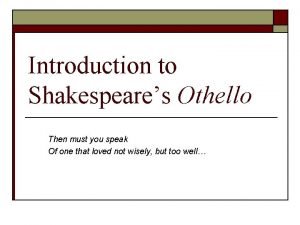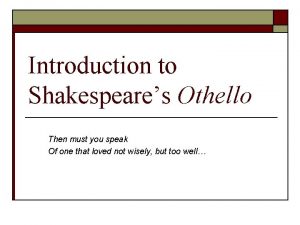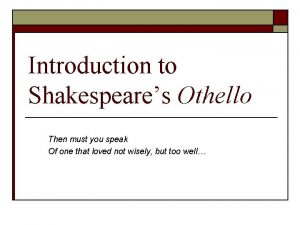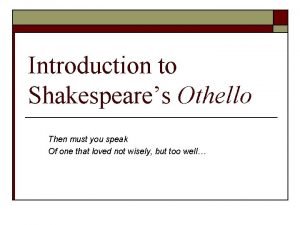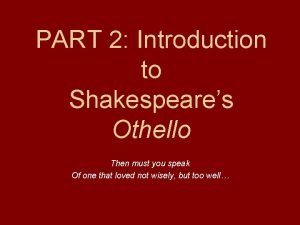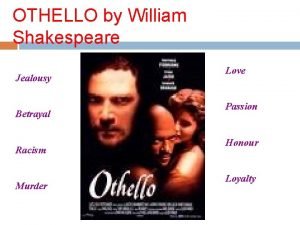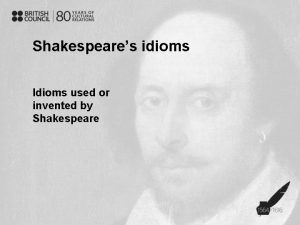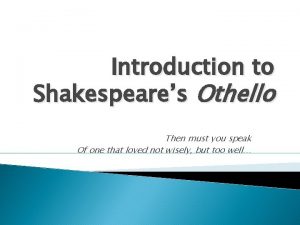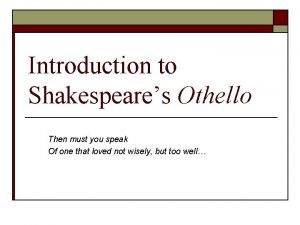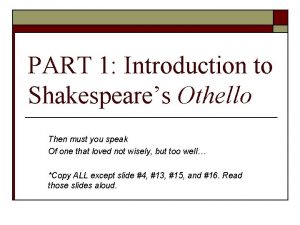Introduction to Shakespeares Othello Then must you speak










- Slides: 10

Introduction to Shakespeare’s Othello Then must you speak Of one that loved not wisely, but too well…

William Shakespeare o Born in April 1564 in Stratfordon-Avon o Received a classical education including Latin, Greek, history, math, astronomy, and music o Most likely began as an actor o Wrote 38 plays, including comedies, histories, tragedies, and romances o Wrote 154 sonnets o Resource for all things Shakespeare. Folger Shakespeare Library

Othello: A Tragedy o o Written in 1604 One of the major tragedies -- after Hamlet and before King Lear and Macbeth Fascination with evil Study the devastating effects of the deadly sins of the spirit: ambitious pride, ingratitude, wrath, jealousy and vengeful hate

Othello: Setting o Journey from Venice, Italy to Cyprus o Venice = order, civilization, rule of reason o Cyprus = disorder, rule of passion

Major Characters o o Othello – the Moor, highly respected / feared general in the Venetian Army Cassio – Othello’s second in command Desdemona – Othello’s wife, a Venetian lady Clown – comic servant to Othello o o Iago – Venetian soldier, feels wronged by Othello Emilia – Iago’s wife Roderigo – Venetian gentleman, in love with Desdemona Brabantio – Desdemona’s father

Dramatic Terms Aside: Monologue: Soliloquy: Foil: a character’s remark, either to the audience or another character, that other characters on stage are not supposed to hear an extended speech by a single character that is uninterrupted by others a speech a character gives when s/he is alone on stage a character’s opposite in qualities or personality. ex: Othello – Desdemona; Iago - Cassio

Allusion: Janus o Roman god of gates and doors, beginnings and endings o Depicted with a double-faced head, each looking in opposite directions o Represents the transition between primitive life and civilization, love and hate, peace and war, etc. All themes of Othello.

Classical Tragic Hero o o The tragic hero is a good man, important to society The hero suffers a fall brought about by something in his nature – tragic flaw. For Othello = jealousy The fall provokes the emotions of pity and fear in the reader which lead to catharsis. The tragic character comes to some kind of understanding or new recognition of what has happened

Othello Terminology: Moor o o Othello – the tragic hero, is a Moor. Muslim person of Arab and Berber descent from northwest Africa In Renaissance drama, Moors often symbolized something other than human - and often, indeed, something devilish. Theme of race relations / perceptions

Othello: Major Themes o o o Nature of love and marriage Nature of jealousy Nature and use of language Male mistrust of women Deception / Honesty Importance of reputation
